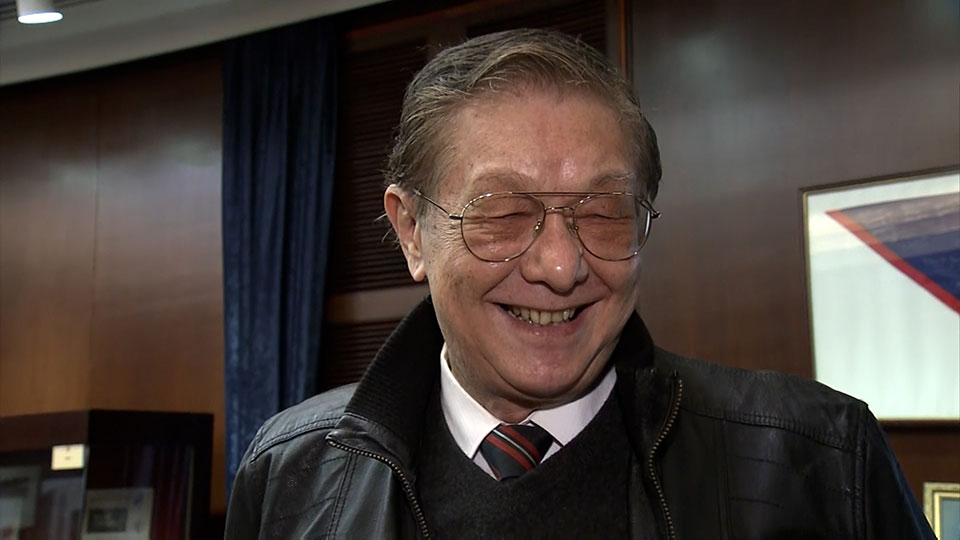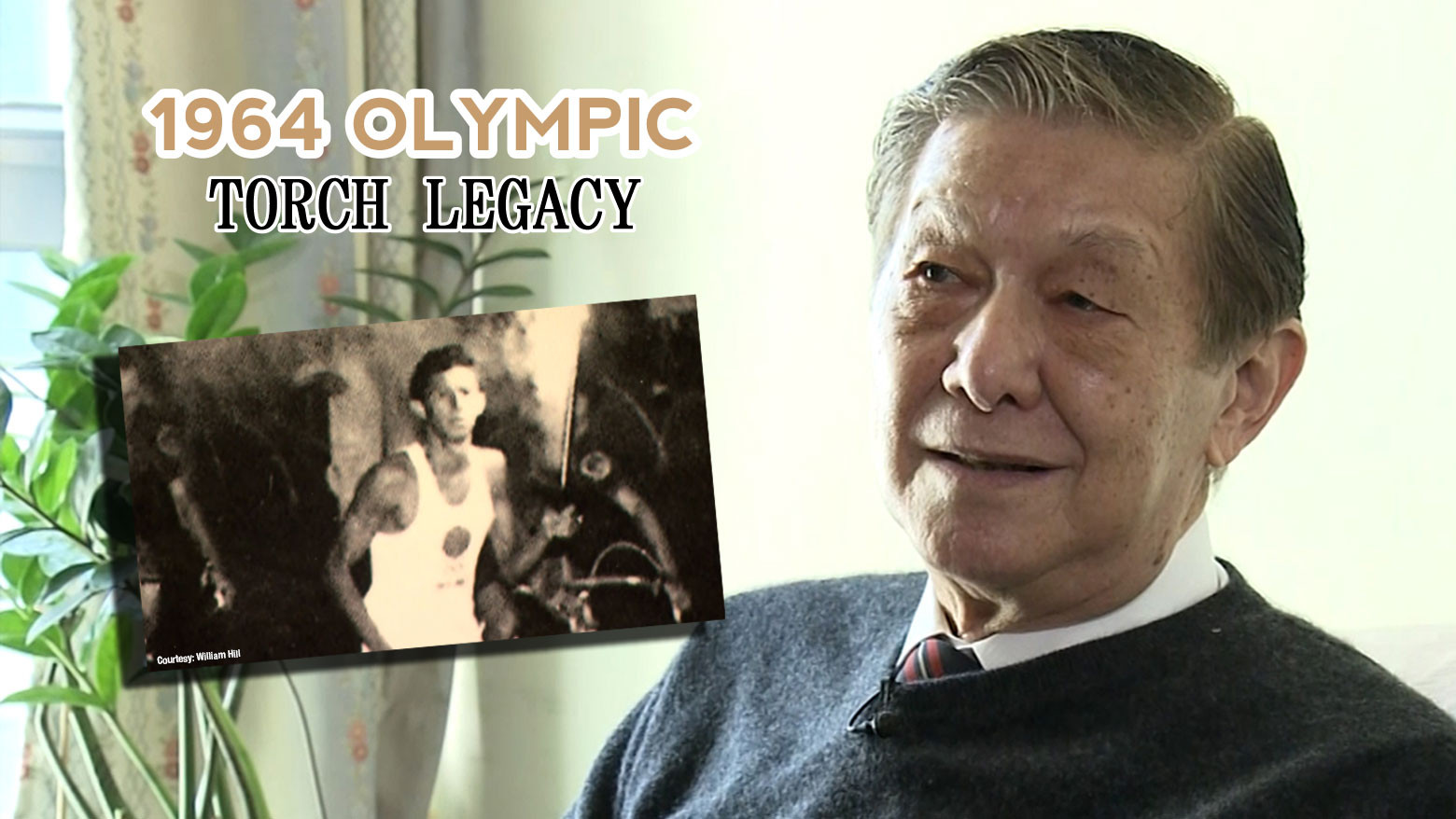High-school student William Hill dashed through Hong Kong’s busy streets bearing the Olympic flame as it made its way to Japan. It would become one of the runs of his life. The sprinter, who represented Hong Kong at the Tokyo Games, spoked to NHK before he passed away last year.
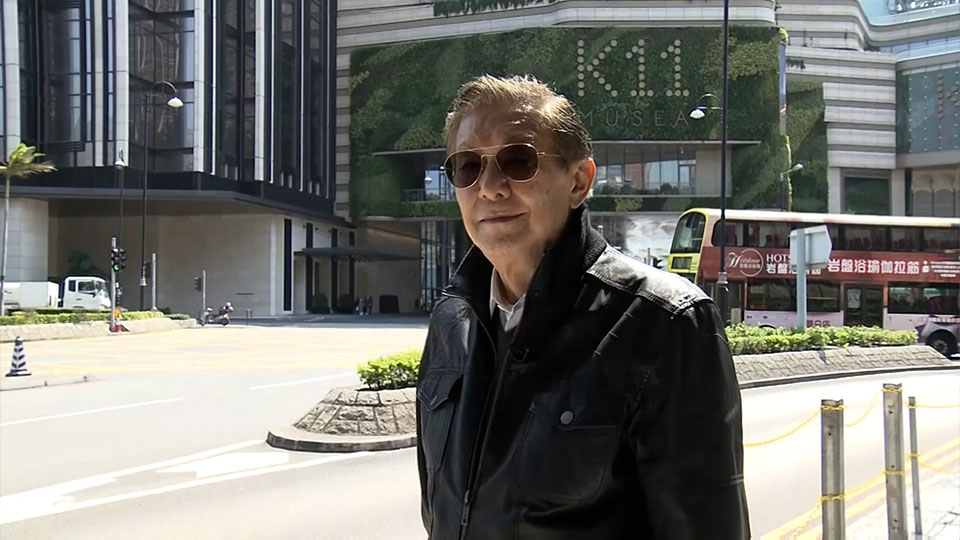
A young sprinter with big dreams
Hill was an up-and-coming athlete in the early 1960s. He was setting new records, and idolized African-American sprinter Jesse Owens, who won four gold medals at the 1936 Berlin Olympics in defiance of Nazi Germany’s ideals.
During his last year of high school, Hill was chosen as one of the 15 runners to carry the Olympic torch through what was then a British colony. He recalled a lack of enthusiasm among the locals.
"It was the first ever Olympic torch relay in Hong Kong. People didn’t know much about the Olympic flame,” he said in an interview last year. “We practiced for the event using props to imitate lighting the torch.”
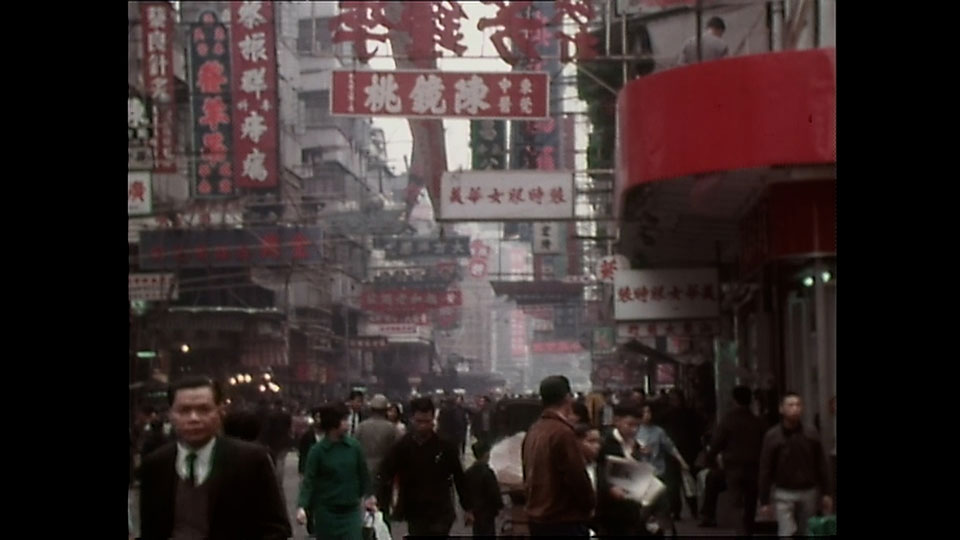
Competing with Mother Nature
Hill said Hong Kong finally caught the Olympic buzz when the flame arrived. A huge crowd showed up along the relay route, cheering on the runners. When the flame crossed Victoria Harbor on a yacht, a bunch of small fishing boats followed in pursuit.
But as the relay progressed, Typhoon Ruby was bearing down on the region. Hill felt the winds grow stronger. He pushed hard to make sure he completed his leg.
"My heart was pounding. I was very nervous and worried that I wouldn't be able to run through to the end," he remembered. “It was a relief to pass the flame to the next runner. The torchbearers in Hong Kong did their utmost to put on the best relay.”
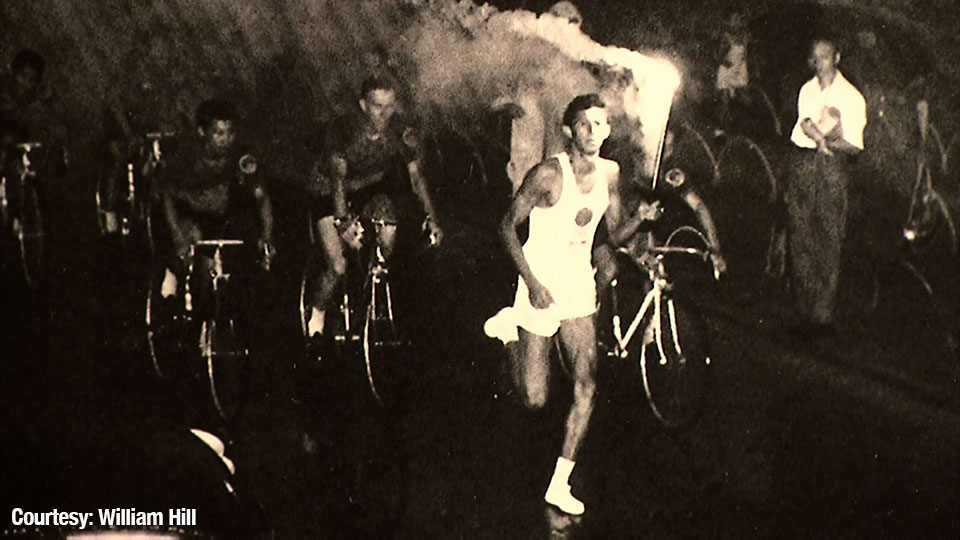
The following day, the typhoon hit Hong Kong at full force, killing 38 people. The plane that was meant to carry the flame to its next destination, Taiwan, was damaged. The departure was delayed for a day.
A local newspaper reported that Hong Kong’s urn for the flame was later put to auction. The money raised reportedly went to a community relief trust for the victims of the typhoon.
Meeting a childhood hero
About a month later, Hill was among the Hong Kong team that marched with their blue jackets at Tokyo Olympics’ opening ceremony. He felt excitement about what was his first trip abroad, and nervous at the same time as he prepared to compete against the world’s best.
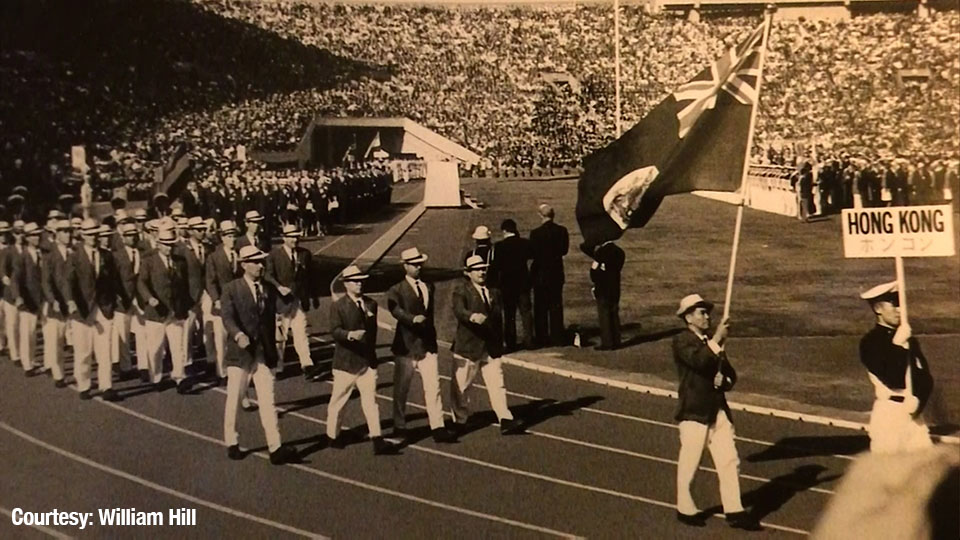
Hill ran in the 200- and 400-meter sprints. He didn’t make it through the first round, but had done enough to become a hero of sorts upon returning to Hong Kong. Back at school, people were especially friendly and asked to take a picture with him.
Hill said he was glad the Olympics were held in Tokyo that year, because if it was further away, the Hong Kong team may not have had enough budget to send him, a young up-and-comer, to the Games.
In Tokyo, he was able to meet his hero, Jesse Owens. The Olympic legend was covering the Games for American newspapers. Hill couldn’t resist getting an autograph.
Inspiring future generations
After the Olympics, Hill wanted to use his experience to inspire a future generation of athletes in Hong Kong. He donated the jacket he wore at the opening ceremony to his school, as well as the identity card he used as a passport to enter Japan.
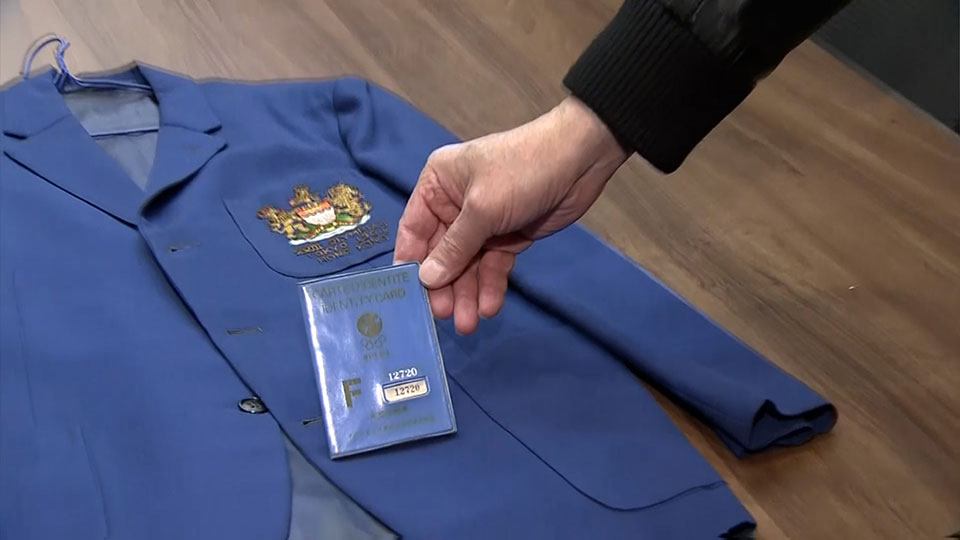
“Everybody needs a role model. I wanted students to know they too have an opportunity to represent Hong Kong at the Olympic Games,” said Hill. “They might be nervous to compete against world-class athletes, but if they do well, future generations will follow.”
The items are carefully preserved to this day. The headmaster at Diocesan Boy's School, Ronnie Cheng Kay Yen, says: "Hill remains a great hero among our students. He is like the soul of our school."
The legacy of the 1964 Tokyo Games also lives on in other parts of Hong Kong. The torch relay is commemorated with a dedicated road and park.
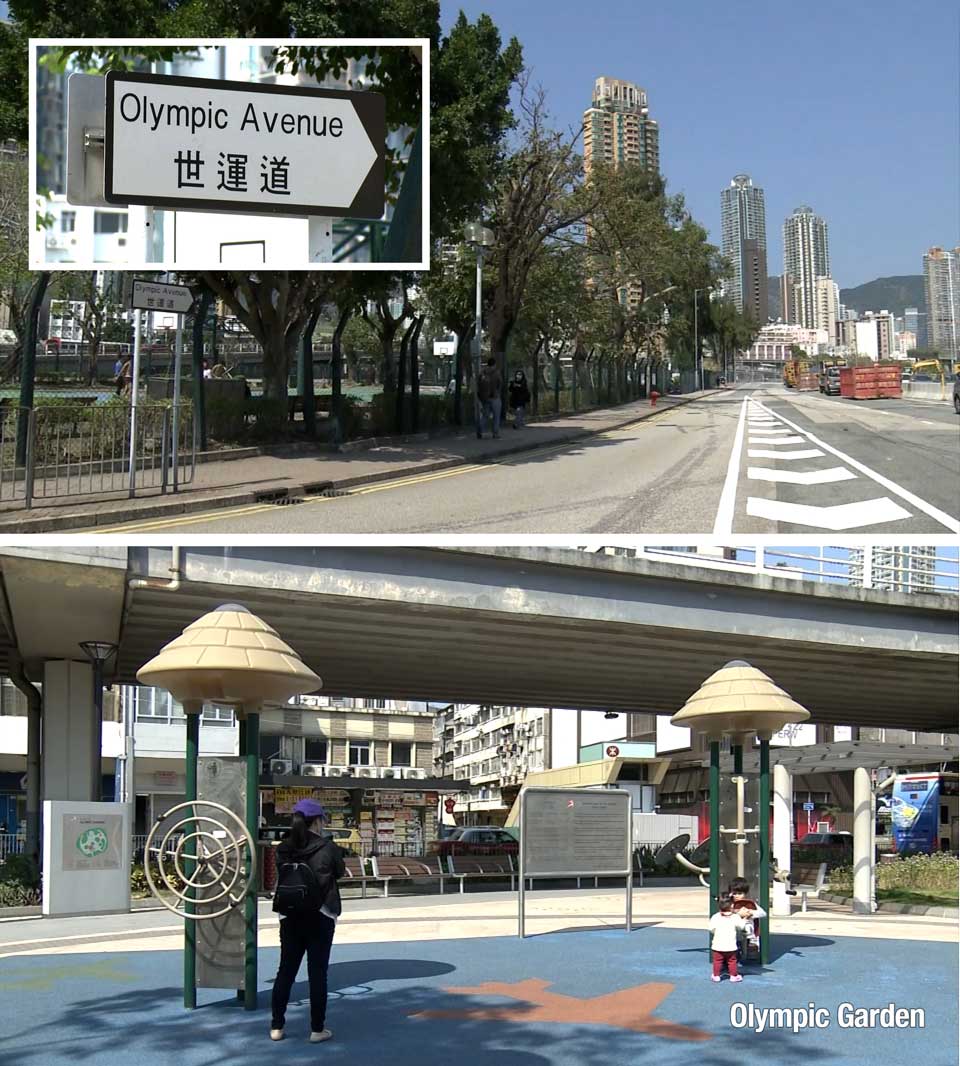
An unforgettable experience
The Olympic flame returned to Hong Kong in 2008 ahead of the Beijing Games, but it was a different spectacle. Pro- and anti-China camps exchanged verbal taunts along the relay route. The police deployed 3,000 officers, and the torchbearers were escorted by guards.
Hill watched on television to avoid the crowds. “I thought the relay in 1964 was the best, because nobody tried to steal the flame back then. People were simply enjoying the scene.”
Sadly, the second Tokyo Games will come too late for Hill, a man whose enthusiasm for the Olympics burned bright until the very end. "The 1964 Tokyo Games were like a model Olympics,” he recalled fondly. “I hope the coming Games will be as wonderful as the previous event.”
